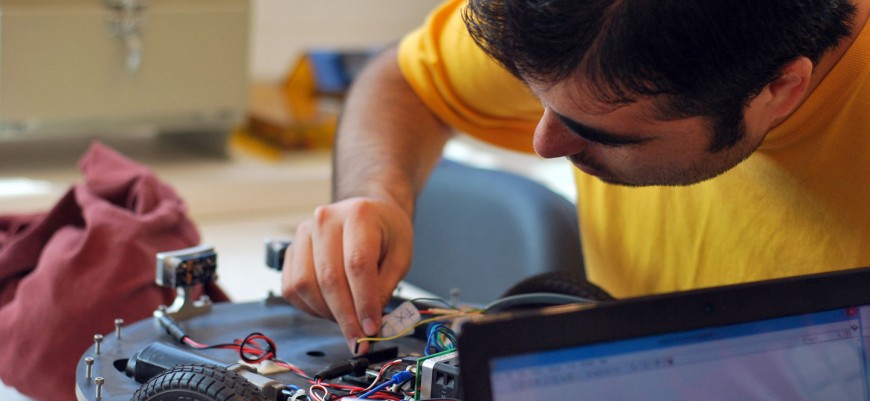Research Funding
Internal Funding
UCN provides internal resources for the development of research activities in emerging areas, to strengthen the competitiveness of the academic staff for its insertion in the National System of Science and Technology or in the National System of Innovation and, furthermore, these funds support the attendance to meetings, and to national and international conferences.
There is also a fund that supports costs of translation of publications and partially funds the submission to open access magazines. In this context, the Institution has created a number of funds to support the development of research such as VRIDT projects of Research using internal funding, Pro-Fondecyt projects , competitive funds for attendance to national and international meetings, research stays, support for publications and incentive for indezed publications.
External Funding
The National Commission for Scientific and Technological Research (CONICYT) is the main agency of the State in charge of developing human capital and strengthening the scientific and technological knowledge base, while CORFO is responsible for supporting innovation. Other agencies include the Agrarian Innovation Fund (FIA), the Millennium Science Initiative (ICM) and the Fisheries Innovation Fund (FIP). From 2006 onwards, these initiatives have been joined by the Fund for Innovation and Competitiveness (FIC).
Scientific and Technological Research
- National Fund for Scientific and Technological Development (FONDECYT): Created in 1981, this was the first State funding program in Chile to award funds on a competitive basis to the area of Higher Education and Scientific and Technological Development. Its mission is to stimulate and promote the development of basic scientific and technological research in the country. In order to achieve this, it incentivizes the initiative of individual researchers and working groups by financing research excellence across all disciplines and institutions, with efficient management of resources and ongoing relationships with individual, collective and institutional users.. [See more]
- Fund for Scientific and Technological Development (FONDEF): This instrument was created 1991 with the purpose of strengthening and leveraging the scientific and technological capacity of universities, technical institutions and other organizations in order to increase business competitiveness and contribute to improving the quality of life of the population.
FONDEF forms part of the National Public Funding System for Technological Development, which is governed by State scientific and technological development policy as part of a national development and technological innovation strategy which aims to bring the Chilean economy to a state of technological maturity by the middle of the 21st century. [See more]
- FONDEF IDeA Program: The aim of the IdEA Program is to provide financial support for the execution of scientific and technological research projects with potential economic and/or social impacts, the results of which can be evaluated over the short term. [See more]
- University Research Enhancement: This program promotes the development of skills for entrepreneurship and business based on the results of research carried out by recent graduates of undergraduate and/or postgraduate programs as part of their thesis or dissertation [See more]
- ICM Program (Millenium Science Initiative): Aims to build capacity for scientific research, stimulating and making use of the country’s most talented minds, as a key factor in sustainable socio-economic development. The Program includes the formation of Centers of Scientific Excellence, giving rise to Scientific Institutes and Scientific Hubs, through competitive, transparent processes. These Centers have the aim of carrying out groundbreaking scientific research, training scientists, disseminating state-of-the-art knowledge through educational and outreach programs, and building relationships with the productive sector and links with other institutions.[See more]
- Fund for Fisheries Research (FIP): Created under the General Law for Fisheries and Aquiculture in 1991, the FIP finances research that forms the basis for the adoption of administrative measures in the areas of fisheries and aquiculture. These administrative measures aim to preserve hydro-biological resources, taking into consideration biological, economic and social aspects. [See more]
Innovation
- CORFO: the main public agency in charge of supporting innovation in all types of company, whether consolidated or emerging (entrepreneurial). It also provides funding for research centers. [See more]
- The Foundation for Agrarian Innovation, FIA: In its role as the agency in charge of developing Agrarian Innovation at the Ministry of Agriculture, the FIA supports processes of innovation and the conditions that support them by financing initiatives, generating strategies and disseminating the results of innovative projects and programs.
The FIA’s mission is to promote and develop a culture of innovation in the forestry, agriculture and fisheries sector that contributes to strengthening the skills and entrepreneurial capacity of institutions, businesses and individuals, with a particular focus on small-to-medium-scale agriculture, ensuring equal access to all actors within these industries, contributing to the systematic increase in competitiveness within the sector and protecting Chile’s natural heritage. [See more]
- Fund for Innovation and Competitiveness (FIC): This instrument was created for the strategic administration of public resources allocated for the funding of projects, initiatives and research aligned with the National Innovation Policy, and which contribute to increasing national competitiveness. [See more]
